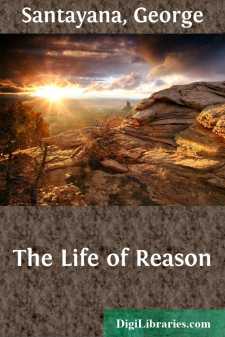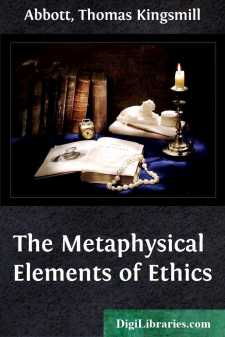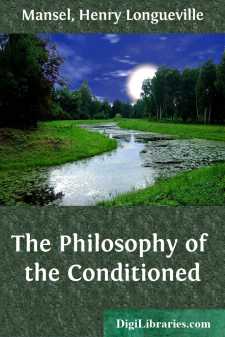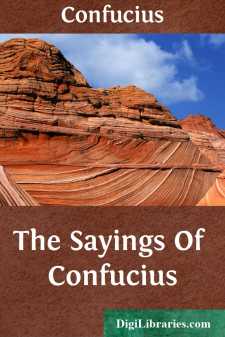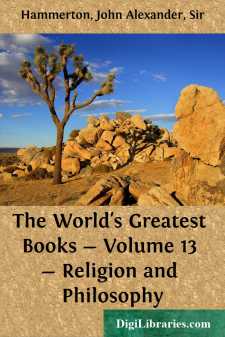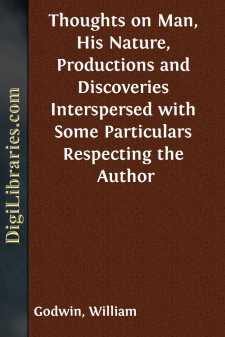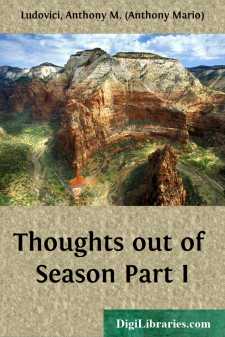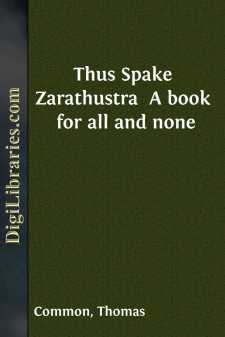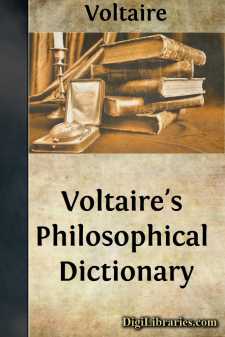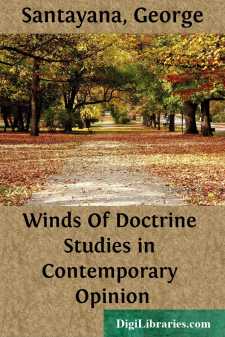Philosophy
- Aesthetics 11
- Eastern 1
- Ethics & Moral Philosophy 2
- General
- Hindu 2
- History & Surveys 3
- Logic 1
- Metaphysics 3
- Political 1
- Religious 7
- Social 3
- Taoist 1
General Books
Sort by:
by:
George Santayana
Whether Chaos or Order lay at the beginning of things is a question once much debated in the schools but afterward long in abeyance, not so much because it had been solved as because one party had been silenced by social pressure. The question is bound to recur in an age when observation and dialectic again freely confront each other. Naturalists look back to chaos since they observe everything growing...
more...
If there exists on any subject a philosophy (that is, a system of rational knowledge based on concepts), then there must also be for this philosophy a system of pure rational concepts, independent of any condition of intuition, in other words, a metaphysic. It may be asked whether metaphysical elements are required also for every practical philosophy, which is the doctrine of duties, and therefore also...
more...
THE PHILOSOPHY OF THE CONDITIONED. The reader of Plato’s Republic will readily recall to mind that wonderful passage at the end of the sixth book, in which the philosopher, under the image of geometrical lines, exhibits the various relations of the intelligible to the sensible world; especially his lofty aspirations with regard to “that second segment of the intelligible world, which reason of...
more...
by:
Confucius
INTRODUCTION Confucius was born in the year 550 b.c., in the land of Lu, in a small village, situated in the western part of the modern province of Shantung. His name was K'ung Ch'iu, and his style (corresponding to our Christian name) was Chung-ni. His countrymen speak of him as K'ung Fu-tzu, the Master, or philosopher K'ung. This expression was altered into Confucius by the Jesuit...
more...
Religion THE APOCRYPHA Apocrypha is a Greek word, signifying "secret" or "hidden," but in the sixteenth century it came to be applied to a list of books contained in the Septuagint, or Greek translation of the Old Testament, but not in the Palestinian, or Hebrew Canon. Hence, by theological or bibliographic purists, these books were not regarded as genuine Scripture. That view was...
more...
by:
William Godwin
PREFACE In the ensuing volume I have attempted to give a defined and permanent form to a variety of thoughts, which have occurred to my mind in the course of thirty-four years, it being so long since I published a volume, entitled, the Enquirer,—thoughts, which, if they have presented themselves to other men, have, at least so far as I am aware, never been given to the public through the medium of...
more...
THE Editor begs to call attention to some of the difficulties he had to encounter in preparing this edition of the complete works of Friedrich Nietzsche. Not being English himself, he had to rely upon the help of collaborators, who were somewhat slow in coming forward. They were also few in number; for, in addition to an exact knowledge of the German language, there was also required sympathy and a...
more...
by:
Thomas Common
I. THE THREE METAMORPHOSES. Three metamorphoses of the spirit do I designate to you: how the spirit becometh a camel, the camel a lion, and the lion at last a child. Many heavy things are there for the spirit, the strong load-bearing spirit in which reverence dwelleth: for the heavy and the heaviest longeth its strength. What is heavy? so asketh the load-bearing spirit; then kneeleth it down like the...
more...
by:
Voltaire
ADULTERY Note on a Magistrate Written about 1764 A senior magistrate of a French town had the misfortune to have a wife who was debauched by a priest before her marriage, and who since covered herself with disgrace by public scandals: he was so moderate as to leave her without noise. This man, about forty years old, vigorous and of agreeable appearance, needs a woman; he is too scrupulous to seek to...
more...
by:
George Santayana
I THE INTELLECTUAL TEMPER OF THE AGE The present age is a critical one and interesting to live in. The civilisation characteristic of Christendom has not disappeared, yet another civilisation has begun to take its place. We still understand the value of religious faith; we still appreciate the pompous arts of our forefathers; we are brought up on academic architecture, sculpture, painting, poetry, and...
more...


